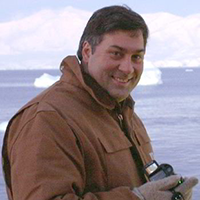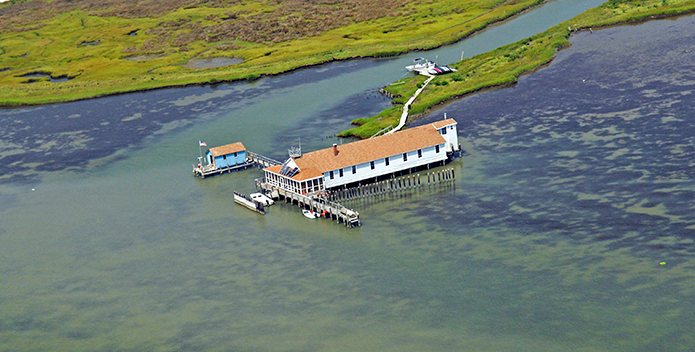A self-proclaimed “Baltimorean,” Professor Ken Halanych grew up on and around the Chesapeake Bay. Though he was always interested in science and particularly biology, a trip to Fox Island with the Chesapeake Bay Foundation in high school gave him a hands-on experience with marshes, fish, crabs, snails, and marine life—exposing him to the importance of the natural environment and creating what he describes as a “common thread” throughout his life.

Professor Ken Halanych grew up on and around the Chesapeake Bay.
Professor Ken Halanych.
“I spent a week in an old hunting lodge on a salt marsh island, and every day we went out and looked at animals and organisms,” he said. “That really introduced me to marine research and from that point on I was hooked.”
Fox Island was built in 1929 as a hunting and fishing lodge and is surrounded by the waters of Tangier and Pocomoke Sounds in Virginia. It is an “off-the-grid” place where students are removed from the distractions of modern life and spend three days working on boats, beaches, and marshes alongside their teachers, biologists, and watermen.
After high school graduation, Halanych came back to CBF to volunteer as an environmental educator, helping students connect with the Chesapeake Bay just as he had a few years earlier.
“Educating future generations is so important to ensure they don’t lose the knowledge and inspiration to protect the environment,” said Halanych.
Now an accomplished and award-winning marine biologist, Halanych is a Professor of Biological Sciences at Auburn University, where he recently received the 2018 Creative Research and Scholarship Award. Halanych proved that comb jellies, not sponges, are actually the first lineage of the animal kingdom.
Working with students seems fitting, as Halanych’s educational experiences so greatly impacted his career trajectory.
“All of my students and postdocs are still in science or a science-related field, which is pretty amazing,” said Halanych. “Environmental education is paramount and stresses the importance of fact-based decision making. Now more than ever we should be pushing the importance of a healthy environment.”
Designed to educate, engage, and empower participants to make a difference, CBF’s outdoor educational experiences are often the beginning of a common thread with the environment and the Bay. Each year, we talk to people from all walks of life who remember their first introduction to the Chesapeake—often though our education programs.
For more information about Halanych and his groundbreaking work, visit his website.




